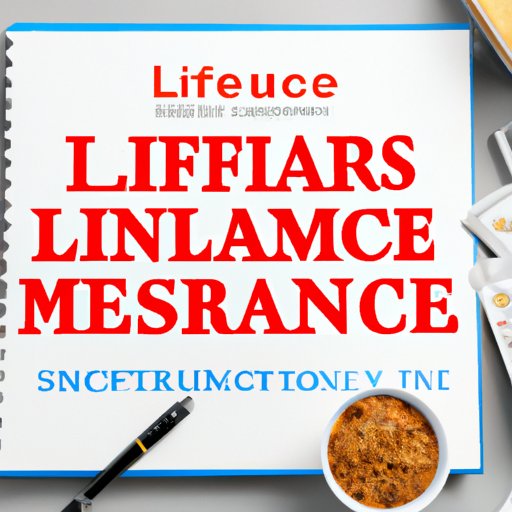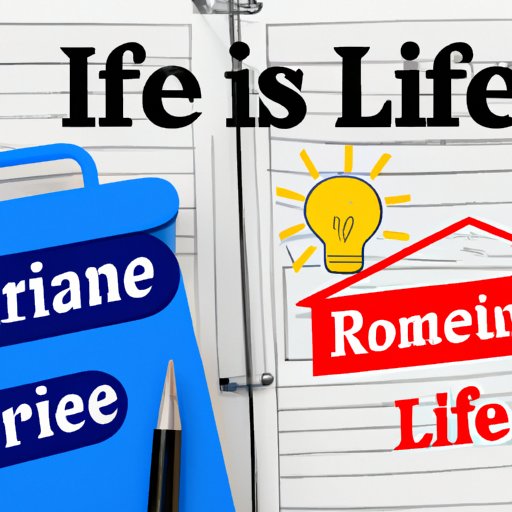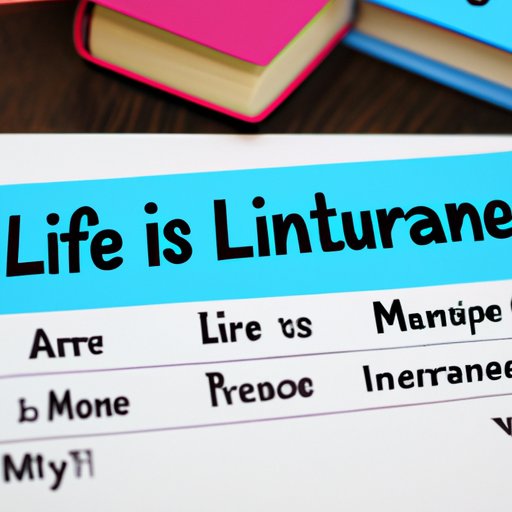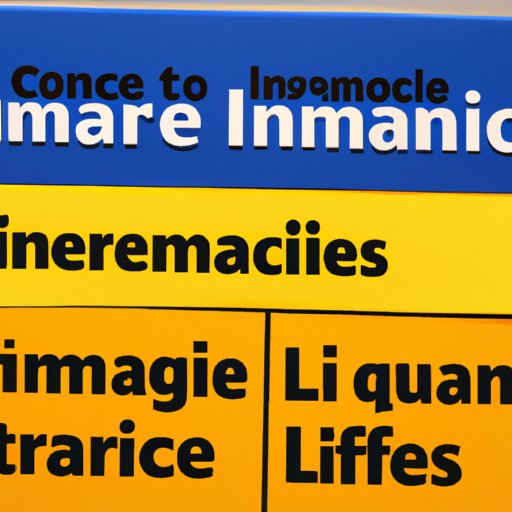Introduction
Term life insurance is a type of life insurance that provides coverage for a specific period of time, typically from one to thirty years. It pays out a death benefit if the insured individual passes away during the term of the policy. The purpose of this article is to explore what term life insurance is and how it works, so readers can make an informed decision about whether or not this type of policy is right for them.
Exploring the Basics of Term Life Insurance: What Is It and How Does It Work?
Term life insurance is a type of life insurance that provides coverage for a specific period of time. It pays out a death benefit if the insured individual passes away during the term of the policy. This type of policy is often chosen by individuals who want to provide financial protection for their families in the event of their death. It is also a popular choice for those who need temporary coverage or who cannot afford the higher premiums associated with permanent life insurance policies.
There are two main types of term life insurance: level term and decreasing term. Level term policies offer a fixed amount of coverage for a set period of time, while decreasing term policies have a decreasing death benefit over the course of the policy’s term. Depending on the insurer, other types of term life insurance may be available, such as convertible term and return of premium.
The benefits of term life insurance include providing financial protection for your family in the event of your death, as well as providing peace of mind knowing that you have coverage in place should anything happen. Additionally, term life insurance can be used to cover funeral expenses, pay off debts, and provide an income for surviving family members.

A Comprehensive Guide to Understanding Term Life Insurance
When considering a term life insurance policy, there are several factors to consider. First, you should determine how long you need coverage for. You should also consider how much coverage you need, what type of policy is best for your needs, and what terms and conditions are included in the policy. In addition, you should factor in the cost of the policy, which will depend on the type of policy you choose, the age and health of the insured individual, and the amount of coverage desired.
It is important to understand the terms and conditions of your policy before signing up. Many policies come with exclusions and riders, which are additional provisions that can impact the policy’s coverage. For example, some policies exclude certain medical conditions, while others may have riders that increase the death benefit if the insured individual dies within a certain time frame.
The cost of term life insurance varies depending on the type of policy selected, the age and health of the insured individual, and the amount of coverage desired. Generally speaking, the younger and healthier you are, the lower your premiums will be. Additionally, the longer the term of the policy, the more expensive it will be.

An Overview of Term Life Insurance: The Pros and Cons
Term life insurance has both advantages and disadvantages. On the plus side, it is generally less expensive than permanent life insurance, offers flexibility in terms of coverage and length of policy, and provides financial protection for your family in the event of your death. Additionally, some policies offer a conversion option, allowing you to convert your term life policy into a permanent life policy at any time.
On the downside, term life insurance does not build cash value, so you will not receive any money back if you do not pass away during the policy’s term. Additionally, the coverage only lasts for a set period of time, so if you outlive the policy, you will no longer be covered. Finally, if you do pass away during the policy’s term, the death benefit is typically only paid out to the beneficiary listed on the policy.

What You Need to Know About Term Life Insurance
When researching and shopping for a term life insurance policy, there are several steps you should take. First, you should compare different policies and companies to find the best rate and coverage for your needs. You should also read the policy’s fine print carefully to ensure that you understand all of the terms and conditions. Additionally, you should ask questions about the policy, such as what exclusions and riders are included, how the policy works, and how much the premiums will be.
Benefits and Risks of Term Life Insurance: A Comprehensive Guide
Before purchasing a term life insurance policy, it is important to weigh the benefits and risks associated with this type of policy. On the plus side, term life insurance provides financial protection for your family in the event of your death, is generally less expensive than permanent life insurance, and offers flexibility in terms of coverage and length of policy. Additionally, some policies offer a conversion option, allowing you to convert your term life policy into a permanent life policy at any time.
On the downside, term life insurance does not build cash value, so you will not receive any money back if you do not pass away during the policy’s term. Additionally, the coverage only lasts for a set period of time, so if you outlive the policy, you will no longer be covered. Finally, if you do pass away during the policy’s term, the death benefit is typically only paid out to the beneficiary listed on the policy.
Conclusion
Term life insurance is a type of life insurance that provides coverage for a specified period of time. It pays out a death benefit if the insured individual passes away during the term of the policy. When selecting a policy, it is important to consider the type of coverage, the terms and conditions of the policy, and the cost of the policy. Additionally, it is important to understand the benefits and risks associated with term life insurance before purchasing a policy. By taking the time to research and compare different policies, you can find the best coverage for your needs.
(Note: Is this article not meeting your expectations? Do you have knowledge or insights to share? Unlock new opportunities and expand your reach by joining our authors team. Click Registration to join us and share your expertise with our readers.)
